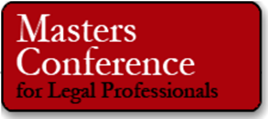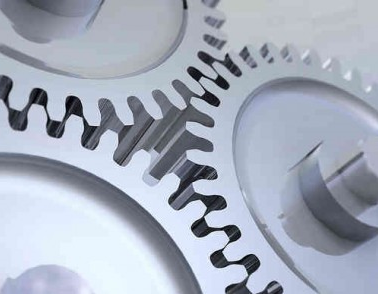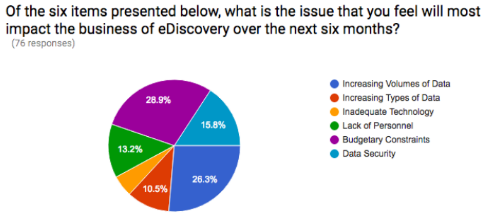As noted yesterday, LegalTech West Coast 2016 (LTWC) is happening this week in San Francisco and eDiscovery Daily is reporting about the latest eDiscovery trends being discussed at the show. If you’re in the San Francisco area, today is the last day to come check out the show – there are a number of sessions available and at least 56 exhibitors providing information on their products and services.
Perform a “find” on today’s LTNY conference schedule for “discovery” or “information governance” and you’ll get 24 hits. Sessions in the main conference tracks include:
9:00 AM – 10:00 AM:
The Encryption Debate: Privacy, Public Safety and Data Security
Apple vs. FBI in the wake of the San Bernardino shooters. The Paris and Brussels attacks. Is it possible to find a balance between protecting user privacy while ensuring national security and public safety? Join us as advocates for each side argue their stance in this hot button debate.
Speakers are: David Bitkower, Principal Deputy Assistant Attorney General, Criminal Division, US Department of Justice; Anthony D. Romero, Executive Director, American Civil Liberties Union. Discussion Leader: Erin E. Harrison, Editor in Chief, Legaltech News, ALM.
10:30 AM – 11:30 AM:
Information Governance and the Updated FRCP: Speed, Proportionality, Preservation and Ethical Challenges
- How have the December 2015 changes to the Federal Rules of Civil Procedure altered legal strategies in the discovery process and thus the information governance efforts necessary to support those strategies?
- Mapping and categorizing data sets proactively will help information governance professionals identify and preserve potentially relevant information more quickly when the inevitable lawsuit ensues.
- Defending the identification and preservation processes will depend on effective information governance disciplines while preparing for, and reacting to, litigation.
- Navigating potential ethical challenges as to advice on data retention and disposition in light of the updated Rules.
Speakers are: John Janhunen, Corporate Counsel, Google Inc.; Heidi Maher, Executive Director, CGOC. Discussion Leader: John Isaza, Partner, Rimon PC.
Legal Innovation Lightning Round One
Join us for a series of fast-paced, successive demos and talks featuring the latest emerging legal tech companies working to advance the legal system. During this Shark Tank style session, our presenters have the opportunity to “pitch” their products to and receive feedback from a panel of judges consisting of investors, academics and industry giants.
Speakers and Judges to include are: David Fisher, CEO & Founder, ClearLegal; David Slonim, Co-Founder, EstatePass; Monica Bay, Fellow, CodeX; Nicole Shanahan, Fellow , CodeX. Discussion Leader: Oliver Goodenough, Professor and Co-Director of the Center for Legal Innovation, Vermont Law School.
Ethical Considerations for Machine Learning and Other Future Technologies
Can technology perform the same tasks as a human lawyer? This session explores how computers will soon transform the delivery of legal services. Attendees gain an understanding of the various legal capabilities of computers in the near-future, enabling law firms to work smarter and more efficiently.
Speakers to include are: Dr. Zev J. Eigen, Global Director of Analytics, Littler Mendelson, PC; Judy Selby, Former Partner and Co-leader, Information Governance Team, BakerHostetler. Discussion Leader: Carolyn Southerland, Managing Director, Morae Legal, Member, Houston Chapter of Women in eDiscovery.
1:30 PM – 2:30 PM:
Can Proportionality in Discovery Finally Be Realized with the New Federal Rules?
- Can the new Rules finally fulfill the promise of a “just, speedy, and inexpensive” process?
- Are companies reconsidering what’s reasonable for preservation?
- Has the plaintiff’s bar been frustrated in obtaining discovery as it feared?
- Are the parties having more meaningful Rule 26(f) conferences?
- How will proportionality considerations affect third party subpoenas?
Speakers to include: Mira Edelman, Senior Discovery Counsel, Google Inc.; Hon. Andrew J. Peck, United States Magistrate Judge, United States District Court, Southern District of New York; David L. Stanton, Litigation Partner and Information Law & Electronic Discovery Team Leader, Pillsbury Winthrop Shaw Pittman LLP. Discussion Leader: Patrick Oot, Partner, Shook, Hardy & Bacon LLP.
Legal Innovation Lightning Round Two
In continuation of this morning’s session, participants hear from a second group of legal technology disruptors who demonstrate how they are working to revolutionize the law. During this Shark Tank style session, presenters have the opportunity to get in front of our esteemed panel of judges who represent various players in the legal tech ecosystem; panelists will in turn share their views on each presentation.
Speakers and Judges to include are: Leila Banijamali, Founder and General Counsel, Startup Documents; Noory Bechor, CEO & Founder, LawGeex; Kevin Miller, CEO & Founder, Legal Sifter; Jonathan Pyle, Founder , Docassemble; Monica Bay, Fellow, CodeX; Oliver Goodenough, Professor and Co-Director of the Center for Legal Innovation, Vermont Law School. Discussion Leader: Nicole Shanahan, Fellow , CodeX.
E-Discovery Rainmaking at the Law Firm: A New Model for Processing Hosting and Review
As law firms start to insource more and more of their clients work – cost effectively – the paradigm for using third party vendors has shifted to software as a service and enterprise deployments offered by the firm from the traditional client-firm-vendor trifecta. This case study illustrates how one law firm is successfully offering e-discovery services effectively through managed services partnerships with discovery software and service vendors.
Speakers to include are: Robert E. Tonn, Partner, Holland & Knight LLP; Joan Washburn, Director of Litigation/eDiscovery Services, Holland & Knight LLP.
2:45 PM – 3:45 PM:
Incident Readiness: The Role of Information Governance in Mitigating Breach Exposure
- Information breaches are increasingly common. In today’s business environment, information is power, and those who control information have the most power. Bad actors are incentivized to break in, or recruit insiders, to steal data – to sell identities on the black market, as hacktivists to make a socio-political statement, as disgruntled employees and customers to get back at a corporation they think wronged them.
- In most of the recent high-profile data breaches, the bad actors were in the systems for a long time, acting unbeknownst to their victim and with little resistance; and the scope of the breaches were difficult to quickly ascertain. Most security experts agree that perimeter security is important but isn’t near enough – so what else can we do?
- In this session our expert panel will explore the relationship between Information Governance and Information Security and answer important questions such as:
- What role can IG play in helping companies detect breaches more quickly and have greater confidence that they can identify the information that was at risk or stolen?
- How can IG support an organization’s ability to establish better security protocols and processes?
- What disciplines exist in a mature IG program that can aid in evaluating the impact of a breach?
Speakers to include: Jeffrey J. Beard, Esq., GRC & IG Leader, IBM; Michael S. Dicke, Partner, Securities Litigation, Fenwick & West LLP; Tolga Erbay, Senior Manager, Security Risk and Compliance, Dropbox. Discussion Leader: John Isaza, Partner, Rimon PC.
In addition to these, there are other sessions today that might be of interest. For a complete description for all sessions today, click here.
So, what do you think? Did you attend LTWC this year? Please share any comments you might have or if you’d like to know more about a particular topic.
Disclaimer: The views represented herein are exclusively the views of the author, and do not necessarily represent the views held by CloudNine. eDiscovery Daily is made available by CloudNine solely for educational purposes to provide general information about general eDiscovery principles and not to provide specific legal advice applicable to any particular circumstance. eDiscovery Daily should not be used as a substitute for competent legal advice from a lawyer you have retained and who has agreed to represent you.









